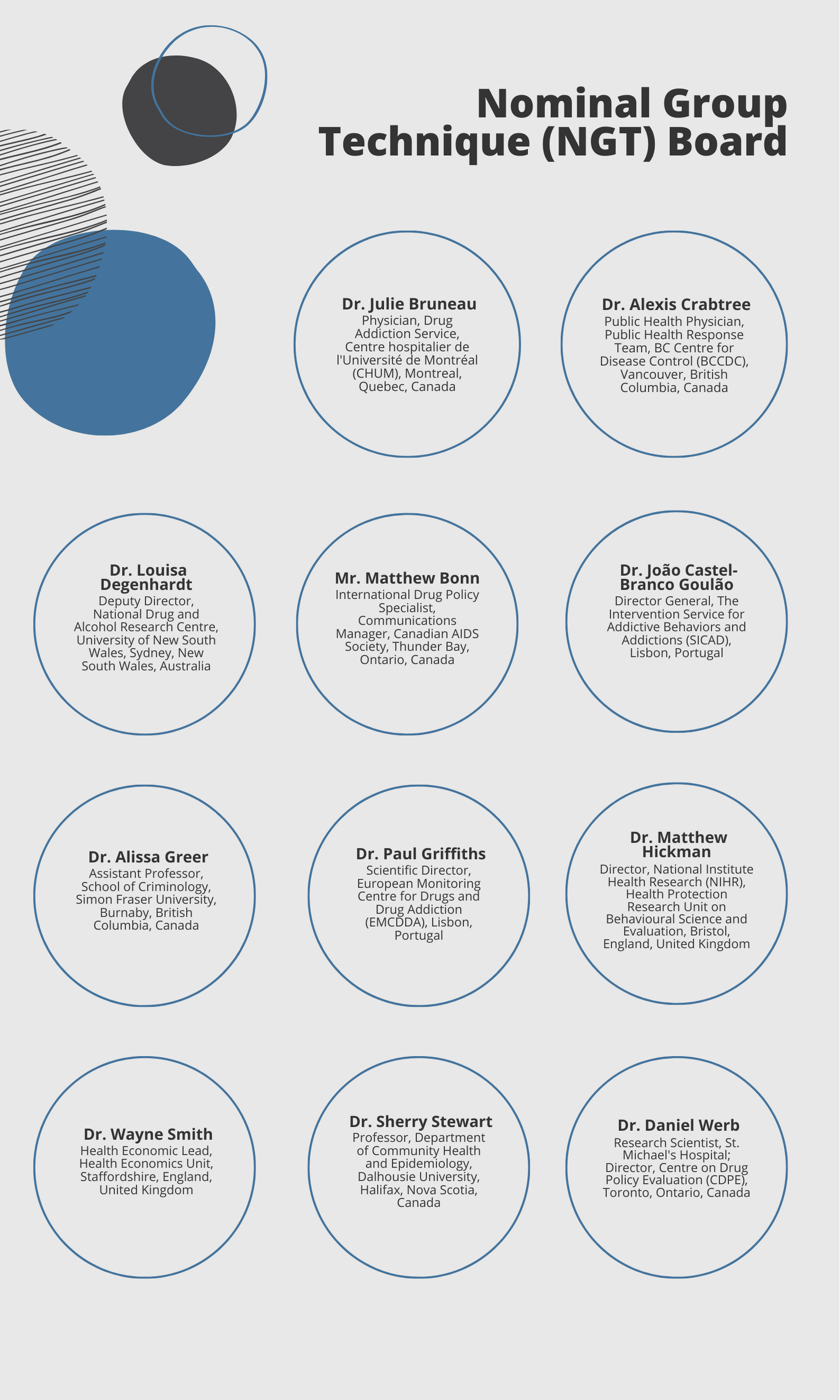In order to develop a scientific and evidence-based evaluation framework, the Ontario CRISM Node collaborated with a number of international drug policy experts and stakeholders who formally participated in an international board to support the development of the evaluation framework for the decriminalization of illicit substances in BC.
Purpose
The purpose of the international board was to bring together world-renowned experts in drug policy and decriminalization to contribute to the development of the evaluation framework. As decriminalization is a complex policy that will likely have impacts on a vast array of sectors (e.g., healthcare, criminal justice, social services, etc.), it is important to draw on international experts' knowledge and experiences of decriminalization elsewhere to ensure that the evaluation design and framework capture all potentially impacted domains.
General Process
Initial recruitment for the board relied on content experts from the Ontario CRISM Node research team who proposed members with known expertise and experience with international drug policy and decriminalization initiatives. Each board member completed a Conflict of Interest (COI) form to identify any perceived or real COI
that could create risk of bias in making decisions and drafting recommendations
for the evaluation, and committed to the process of developing the evaluation design, as outlined below.
The international board was a
time-limited group established to support the development of the
evaluation design and framework. The international board was comprised
of approximately 15 international experts who came together in a
three-step virtual conference process to contribute to the design. The
organization of the process employed a Nominal Group Technique to
triangulate knowledge and reach a consensus on the evaluation design, as this specific Delphi technique
has been shown to yield better results than purely interactive groups.
The three steps occurred between November 2022 and January 2023, and are as follows:
- Step 1 consisted of the distribution of a draft evaluation framework design which outlined the proposed evaluation and provided Likert scale questions asking each board member to rank how effective they believe the proposed design will be for evaluating decriminalization, and asked members to provide feedback and suggestions
- Step 2 consisted of the core research team collating and integrating board member's responses and feedback, and revising the draft framework with these suggestions in mind
- Step 3 consisted of a one-day virtual meeting where the revised framework was shared with board members via the nominal group technique where board members participated and came to a consensus and finalized the evaluation design
Nominal Group Technique (NGT) Board
